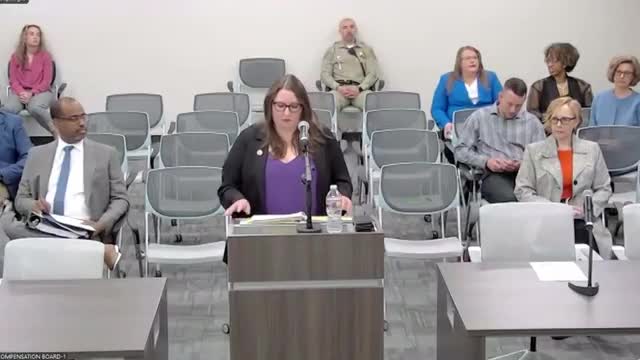CalVCB approves $18 million in Trauma Recovery Center grants, directs review of funding process
Get AI-powered insights, summaries, and transcripts
Subscribe
Summary
The California Victim Compensation Board on March 20 approved staff recommendations to award Trauma Recovery Center (TRC) grants totaling roughly $18 million for fiscal years 2025–26, while directing staff to engage stakeholders and review how shrinking funds are allocated.
The California Victim Compensation Board on March 20 approved staff recommendations to award Trauma Recovery Center grants for fiscal year 2025–26, authorizing staff to adjust individual awards after the governor's May revised budget and directing CalVCB staff to convene stakeholders to review grant processes going forward.
Executive Officer Linda Gledhill told the board staff received "the highest number of applications and the largest funding request ever" for the TRC program and that applicants sought more than $60,000,000 while CalVCB had about $18,000,000 available to distribute. Gledhill said staff used prior‑year savings and a mix of funding sources to maximize awards and that the agency has begun conversations with the administration and Legislature about long‑term solutions given anticipated declines in funding from Prop. 36 and other sources.
The board adopted the staff recommendation to fund 11 centers (nine existing centers and two new centers) using a tiered scoring method and a $2,200,000 cap per two‑year award. Katie Cardenas, deputy executive officer for grants, explained that 40 organizations applied, 31 met minimum statutory qualifications (scores ranged from 35 to 84), and nine applicants were disqualified for failing to meet the statutory minimums. Staff said the recommendation relies on a tiered funding percentage applied after the cap was used to prevent awards so small that TRCs could not meet statutory requirements.
Public comment filled most of the item. Leaders of existing centers and statewide TRC networks described the operational and community costs of suddenly losing funding. Teddy Valenzuela of AMANISED said the Downtown Los Angeles TRC has been "well known, and it's well respected," and urged the board to reconsider cuts that would leave clients without nearby services. Martha Wade, founder and executive director of A Quarter Blue in Orange County, said her center is the only TRC in that county and that cutting funding would leave families without critical, face‑to‑face care.
Other commenters echoed concerns about the inefficiency of repeatedly opening and closing TRCs across grant cycles and urged a statutory or administrative path toward greater funding stability. Stacy Wiggle of the National Alliance of Trauma Recovery Centers asked CalVCB to collaborate with TRCs and national partners on alternatives and statutory examples adopted in other states. Several presenters asked CalVCB to prioritize continuity for centers that have already established community partnerships and multidisciplinary teams.
Board members framed the vote as difficult but necessary in light of limited funds. Member Johnson said continuity for existing TRCs is a priority and asked staff to consider whether future NOFAs and scoring could better favor continuity while still creating opportunities in underserved regions. Member Becton moved approval of the staff recommendation with language that directs staff to "look at processes and engage stakeholders for future TRC grants." The motion passed unanimously on roll call: Member Becton, Member Johnson and Chair Ravel voting aye.
The board also authorized staff to increase or decrease the awards as necessary to reflect final funding available after the May revise of the governor's budget.
Why it matters: Trauma Recovery Centers provide multidisciplinary, trauma‑informed services that TRC leaders and survivors said are difficult and costly to establish. Several speakers described clients who rely on ongoing, in‑person therapy and care; commenters and board members warned that award instability can disrupt services and waste startup investments. CalVCB and the board signaled they will pursue stakeholder engagement and possible statute or process changes before the next NOFA.
What happens next: Staff will finalize award amounts after the May budget revise and will undertake the directed stakeholder engagement and process review in advance of the next grant cycle. Staff said statutory limits and the variability of the Safe Neighborhoods and Schools Fund, the restitution fund and prior‑year general fund allocations constrain how CalVCB can restructure funding without legislative change.
